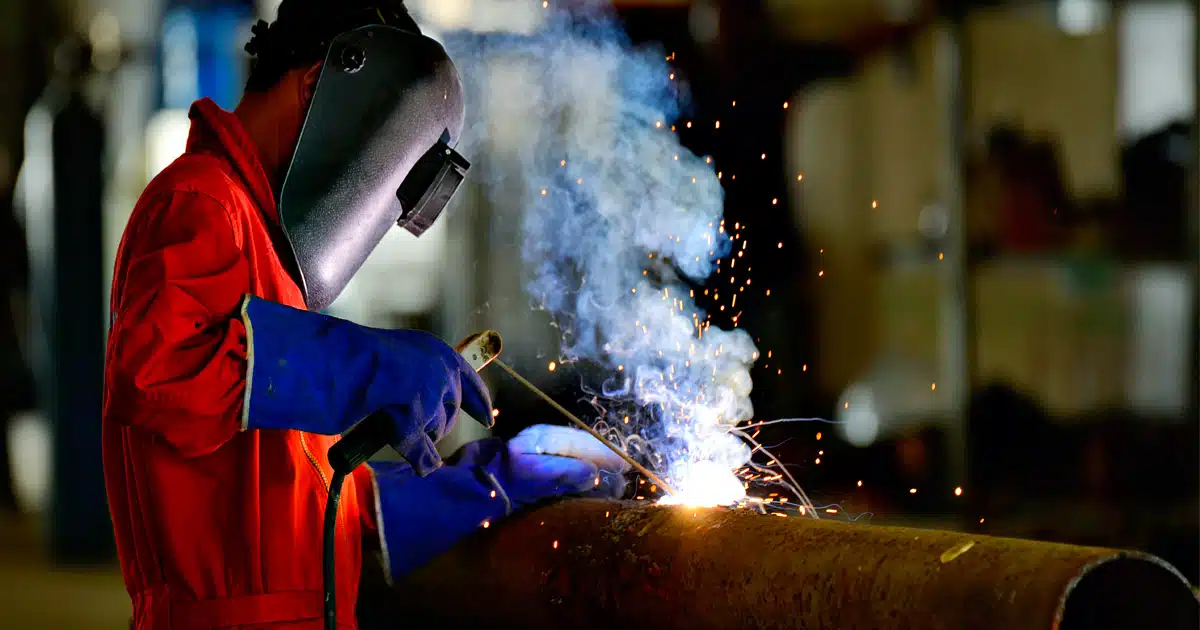Welding is among the most highly-regulated professions in the United States, yet workers in this industry continue to face serious dangers on the job. The tools and materials welders use in construction make them vulnerable to accidents and injuries. Proper safety training, equipment, and procedures are essential for protecting welders.
Listed below are common injuries seen in welders.
Eye and Face Injuries
Welders wear extensive equipment to protect their eyes and face from heat, chemicals, and airborne debris. If shields, helmets, safety goggles, and other gear are not provided, or if they are defective, workers may experience painful lacerations, burns, and other trauma to the upper body.
Electrocution and Burns
Electrical injuries are skin or internal bodily injuries caused by contact with low-voltage and high-voltage sources. This occurs in several ways. Contact with a live conductor can cause electric shock. Electrical welding injuries also occur when the welder unknowingly creates a bridge between the live welding supply (electrode) and the return (workpiece).
Burns are the most common, nonfatal, electrical injury. Burns happen when an individual makes contact with energized electrical wiring or equipment. Musculoskeletal injuries, broken bones, and amputations are some complications of electrical injuries.
Welder’s Flash
Welder’s flash, or arc eye, is a painful eye injury that occurs when the unprotected eye is exposed to UV rays. Welding flames and arcs produce intense, visible UV and infrared radiation. If the eyes are unprotected, UV radiation damages the outer corneal cells of the eye, damaging the nerves underneath. This painful injury is like a sunburn on the eyes.
Hearing Damage
Among all of the construction trades, welders experience the highest rates of noise-related hearing impairment. A high noise level is considered to be above 85 decibels as perceived by the human ear. Air carbon arc gouging, flame cutting, and other welding tasks may produce noises levels up to and over 100 decibels.
Because it has no real symptoms, noise-induced hearing loss often goes undiagnosed and untreated until it has progressed and is more resistant to treatment. Unfortunately, in some cases, hearing loss is irreversible.
Chemical Exposure
Welders are also exposed to a range of metals, gasses, and decomposition materials on the construction site. Acute exposure to these substances may result in temporary eye, nose, and throat irritation, dizziness, and nausea. More severe conditions include ulcers, cancers, and organ and nervous system damage.
Workers’ Compensation for Welders
Every worker should be able to do their job in a safe and hazard-free environment. However, some occupations come with a higher risk of injuries. Welders who are injured in a construction accident may be entitled to Workers’ Compensation to cover their medical costs, lost income, and other expenses.
Workers’ Compensation benefits cannot make injuries go away, but they can provide some peace of mind knowing expenses are covered.
Wilmington Construction Injury Lawyers at Rhoades & Morrow Assist Injured Welders
If you are a welder and have a work injury, contact one of our Wilmington construction injury lawyers at Rhoades & Morrow for legal assistance. Call us at (302) 427-9500 or contact us online to schedule a free consultation. We have offices in Wilmington, Bear, Milford, and Lewes, Delaware. With offices in all three counties of Delaware, we serve clients throughout the state.





